How To Wear A Dupatta – Different Types & Draping Style Ideas
Get the most out of this super versatile piece of clothing by wearing it in different ways.
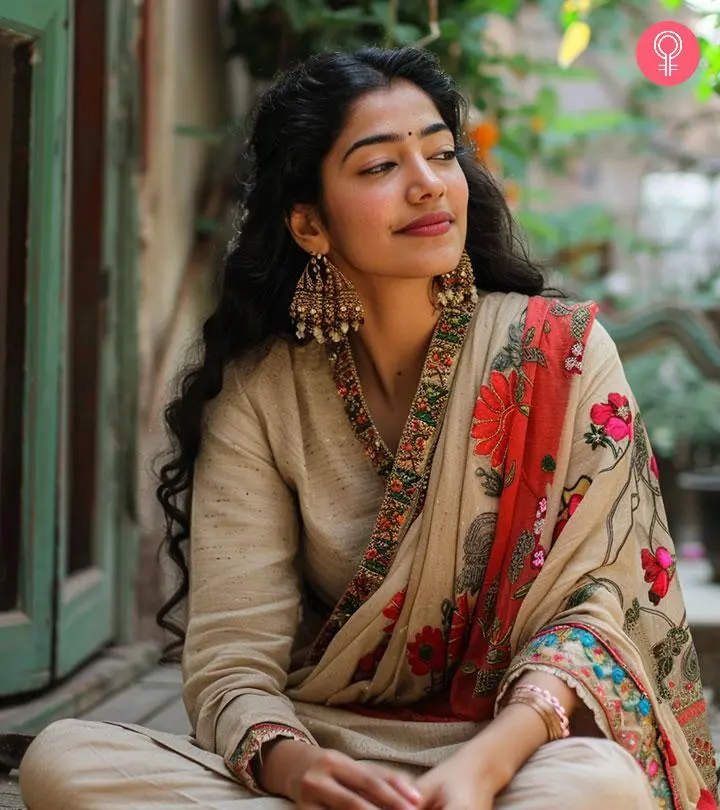
Image: Midjourney/ StyleCraze Design Team
A dupatta in your salwar suit can add that extra charm to your look more so because they can make a significant difference even to a basic salwar-kameez. This is exactly why, in this article, we are going to teach you how to wear dupatta because the options are endless. All you will need to do is scroll down and set your heart on the one that catches your eye. So without further ado, dig in because it is time to flaunt that desi look!
- Fabric: The fabric of the dupatta can make a difference in the way it falls or drapes. While a georgette dupatta is soft and flows well, a cotton dupatta is stiffer and holds the shape well.
- Length: A typical dupatta measures between 2.25 and 2.75 meters. A short-length dupatta goes well with a suit salwar, while a long-length dupatta looks good with a lehenga or floor-length dress.
- Color: Follow a complementary color scheme to create a balanced look. While a dupatta with a shade of pink/gold goes well with a red dress, one with vibrant hues suits a pastel-colored dress.
- Occasion: A heavily embellished dupatta is appropriate for a wedding or formal event, while a lightweight and printed dupatta is suitable for a casual setup.
In This Article
What Is A Dupatta?
A dupatta – also known as ‘chunari,’ ‘odni’ or ‘chunni’ is an equivalent of a scarf if you have to compare it to a contemporary or Western form of dressing, except this is much longer. It used to be a piece of clothing that symbolized a woman’s modesty in the olden days. However, if you dig a little deeper, it was apparently worn by both men and women, only differently. Anyway, that has changed and so has the dupatta. From why and how it’s worn to many variants, these have come a long way.
Key Takeaways
- Dupattas are one of the easiest ways to elevate any basic Indian outfit.
- Different regions have different styles of dupattas, such as phulkari, bandhani, chanderi silk, banarasi silk, zari, and kalamkari.
- It can be draped in various ways, such as the wrap around style, elbow style, one-shoulder, and high neck style.
- It can also be worn with western outfits, such as jeans and tops.
Types Of Dupattas
When it comes to adding that perfect finishing touch to your Indian traditional dresses, choosing the right type of dupatta can make all the difference. Check out the different types that can elevate your look and complement your outfit perfectly.
1. Phulkari Dupatta
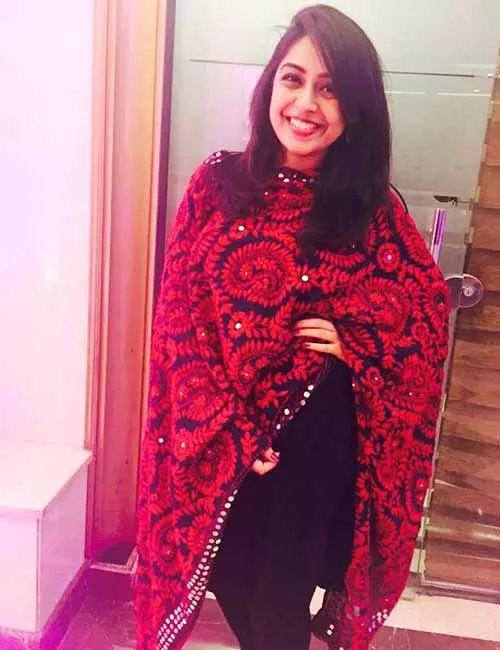
Phulkari dupattas are an accurate representation of the liveliness of Punjab. The highly intricate multi-colored embroidery done on either jute, khadi or georgette fabrics are popular everywhere. From street styles to big designer labels, all have suddenly picked this style up. The best part about these dupattas is that you do not need a set pattern, you can mix and match them. There is no need to accessorize this look as the bright color of the dupatta will have the heads turning. Just keep the outfit simple.
2. Bandhani/Bandhej Dupatta
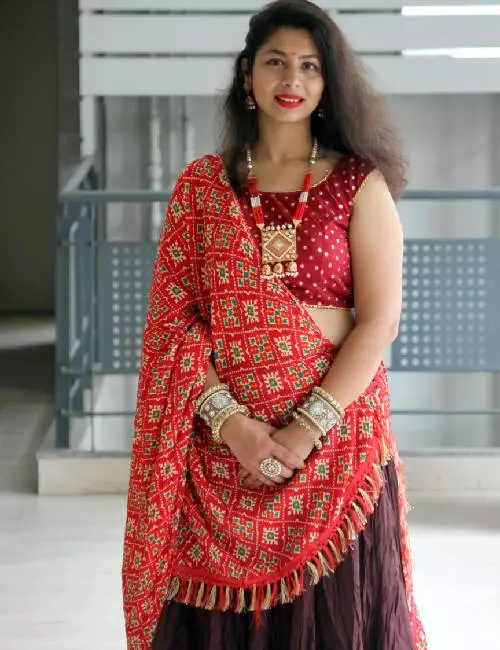
Bandhani style dupattas go way back in time, and the technique is known to be as old as the Indus Valley Civilization. These are knotted and dyed dupattas that come in a variety of fabrics. Rajasthan and Gujarat are famous for their authentic bandhani or bandhej dupattas. You look classy and confident in this graceful cultural attire effortlessly. Bandhani style sarees, dupattas, or suits never really go out of style. You can simply wear a bandhani dupatta with a black or a white kurta and pair them with tribal jewelry to look effortless.
3. Chanderi Silk Dupatta
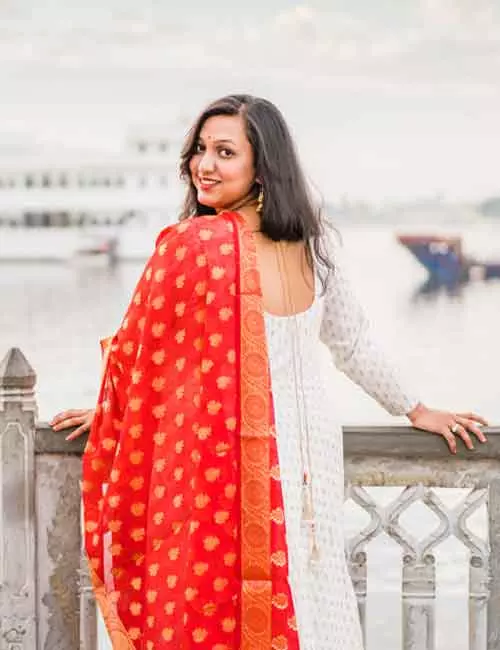
Just a Chanderi dupatta can add sheen and luxury to your outfit and is one of the classiest dupattas you can own. They originate from a small town called Chanderi in Madhya Pradesh and are known for their elegance and simplicity. Chanderi dupattas come in a mix of fabrics and have variants like chanderi silk, cotton, etc. These are lightweight yet celebratory because of the golden zari work. You can wear these with dresses made from cotton, linen, zari, tussar silk, etc. Knot or tuck this dupatta in to add dimension to your shape and create a trendy look. Complement it with suitable jewelry.
4. Banarasi Silk Dupatta
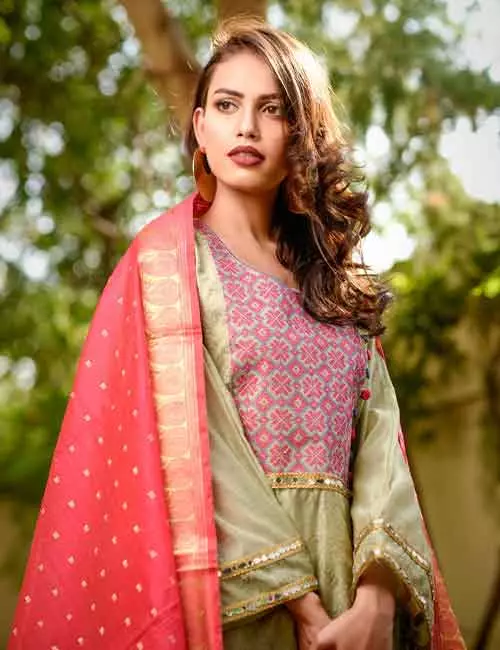
Banarasi dupattas, as the name suggests, originates from Varanasi, UP – a place known for its many wonders. The Banarasi brocade saree was always popular for its rich and heavy duty zari work that exudes grandeur. But the Banarasi style dupatta suddenly found its way back into the Indian couture line. If you have not tried one of these, you should. Keep the rest of your outfit simple. A floor length Anarkali dress will be a perfect match. The richness of the dupatta beautifully contrasts the modest attire for a poised, chic look.
5. Georgette Dupatta
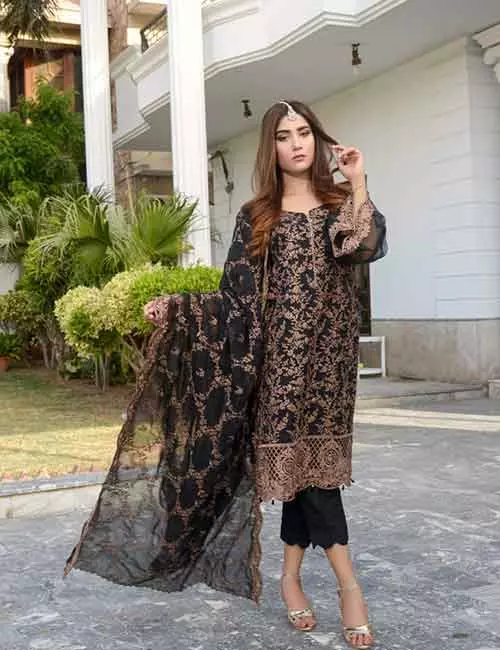
We all have them, love them, and cannot do without them. Your average everyday dupatta will more often than not come in georgette because it is light, elegant, and comfortable to work with. There’s nothing more classy and fashionable than a georgette dupatta if dealt with well. Georgette dupattas are extremely versatile, suitable for both casual and formal occasions. They can be styled with lehengas, salwar kameez, or Indo-western style crop top and skirt look.
 Quick Tip
Quick Tip6. Mirror Work Dupatta
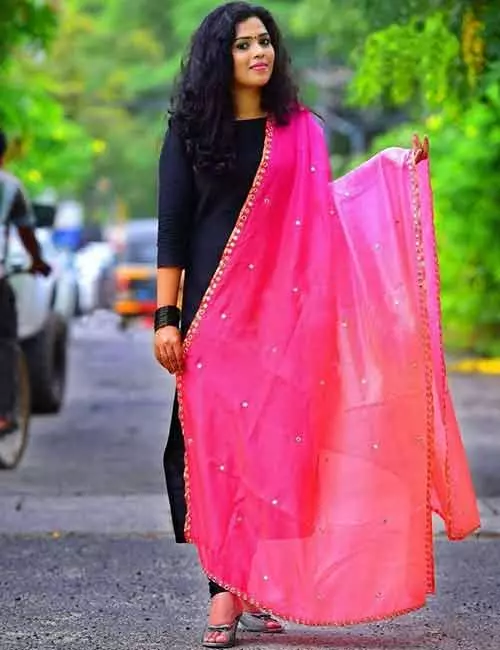
Mirror work is another style that is equal parts contemporary and vintage. It is not specific to a particular fabric; you would typically find these in cotton, georgette, chiffon, etc., which are easy to work with and can hold the mirrors. You can dress up or down when you wear this dupatta, based on the occasion.
7. Chiffon Dupatta
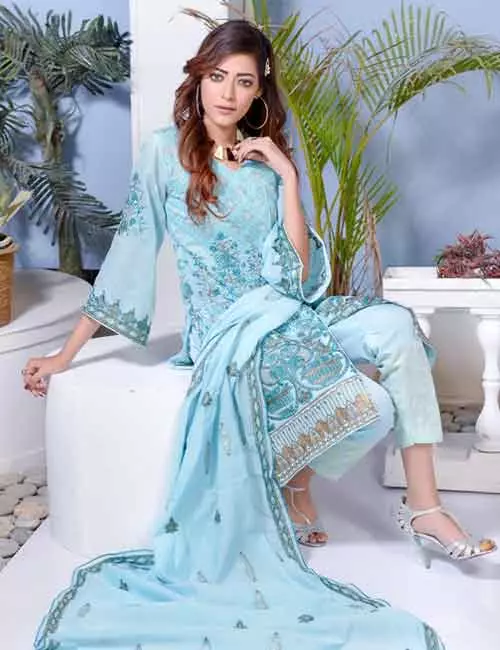
Chiffon is lightweight and flimsy, but an absolute delight to work with. It’s also very common for both regular and party wear salwar suits. It is soft and smooth on the skin, making it easy to carry around. We all need dupattas in standard colors like black, white, blue, etc., pick them in chiffon and you are sorted.
8. Ikat Dupatta
We are all going back in time and bringing back all our old traditions again, especially with clothes. Just like the Banarasi and Kalamkari, Ikat is becoming increasingly popular. From sarees, blouses, dresses, one-piece dresses, and dupattas, Ikat is everywhere. It defines Bohemian fashion in the truest sense.
9. Kalamkari Dupatta
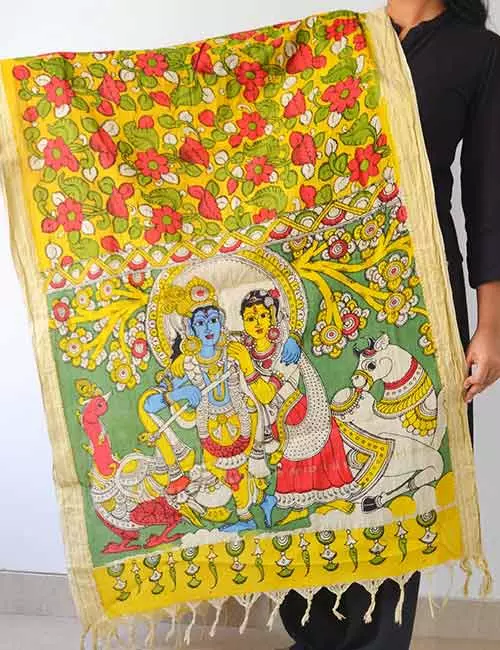
Kalamkari design depicts our culture and heritage like nothing else. Even though it is a technique adapted from Persian culture, the design has been an integral part of our culture for the longest time. It is a hand-painted technique that needs a lot of time, precision, and patience – which is what the weavers are all about. Kalamkari dupattas are a classic example of the mix-and-match style. You can wear these with simple everyday kurtas to parties, and work with tribal jewelry to stand out.
10. Net Dupatta
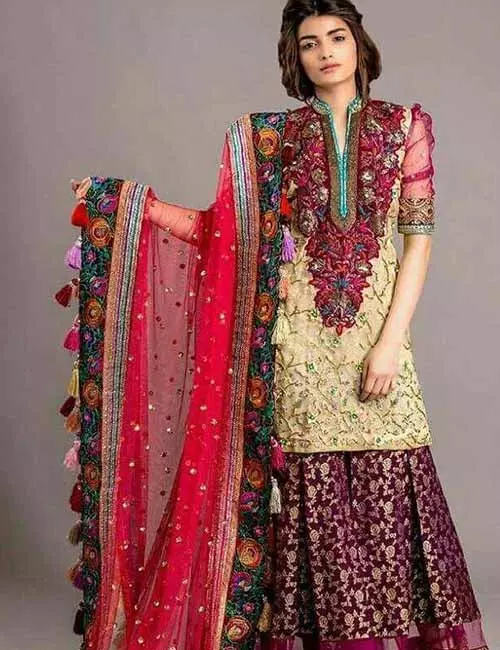
Net dupattas are majorly used with party wear dresses, lehengas, etc. They are flimsy but hold heavy embroidery and have an inbuilt sheen in them that makes everything pop. They look great with dhoti style, Anarkali, floor-length dresses, and of course lehengas.
11. Zari Dupatta
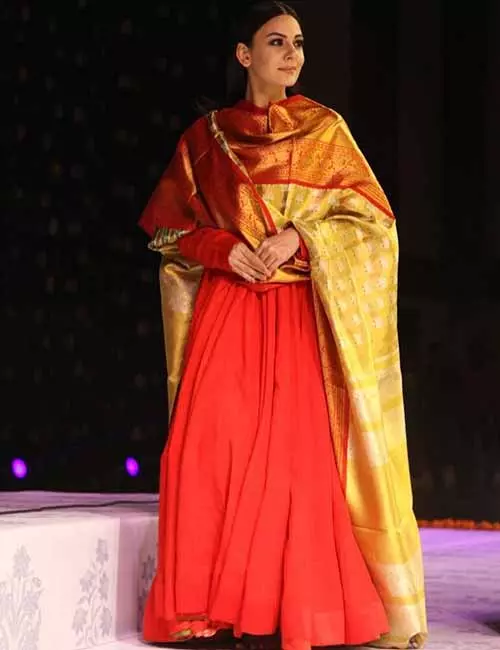
Pattu/Zari or Silk dupattas are timeless and look great with traditional dresses. The biggest designers of our times have collections with just zari dupattas, and they are presenting them at fashion week, adding a whole new perspective to this age-old beauty.
How To Wear A Dupatta: Different Draping Style Ideas
1. Drape Around
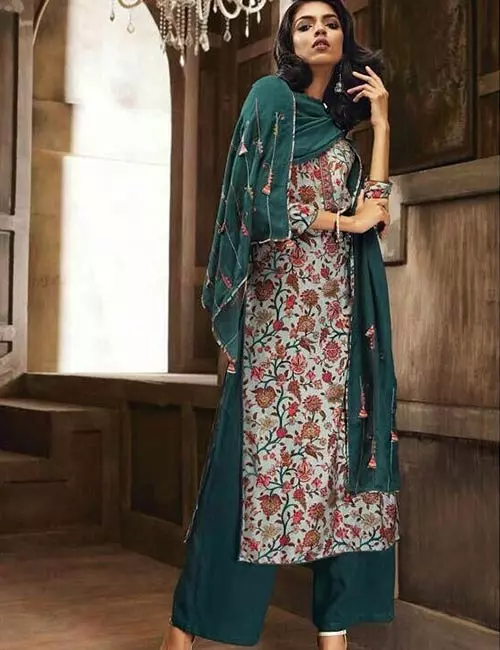
A dupatta draping technique that not only makes you look smart but also keeps you warm. If you are dealing with big cotton or linen dupattas, here’s something that takes the attention away from the dress.
2. Elbow Style
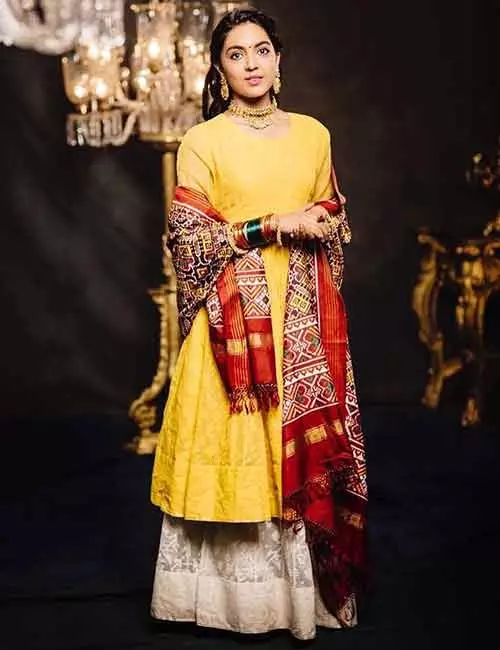
Here is a modish idea if you are contemplating how to wear a dupatta in a way that makes you feel like a queen! This is something that we all grew up doing. You just need to throw the dupatta to the back of your body and bring it back up over your elbow or forearm. It is a signature style with lehengas.
3. One Arm
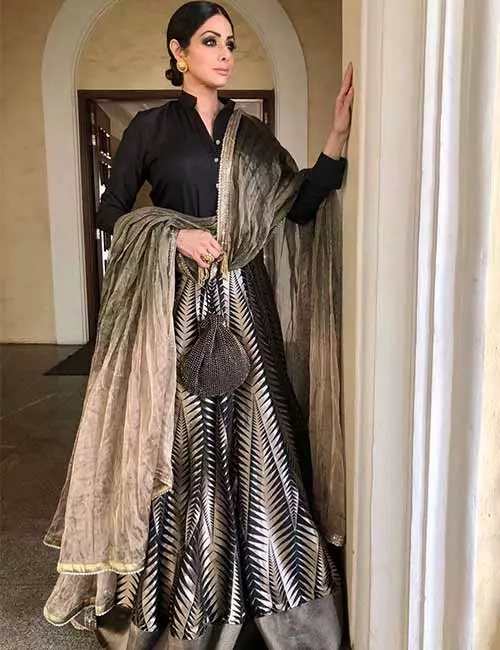
Works perfectly when you have a dupatta that is sheer but heavily worked upon. Place it on your shoulder and spread it a little to bring it onto one arm; it shows off the dupatta and looks stylish too.
4. High Neck Style
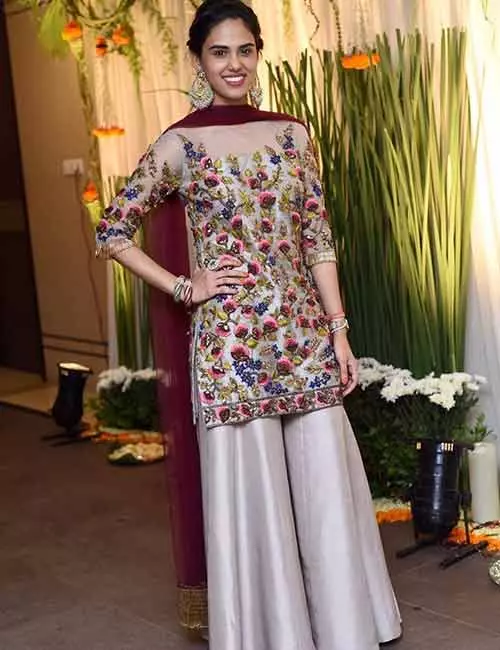
The typical 90s Punjabi style draping that we can never get enough of. In fact, since most of us resort to dupattas because they work as a cool prop, and not for its functional use, this is quite famous and not news to any of us.
5. One-Sided Shoulder
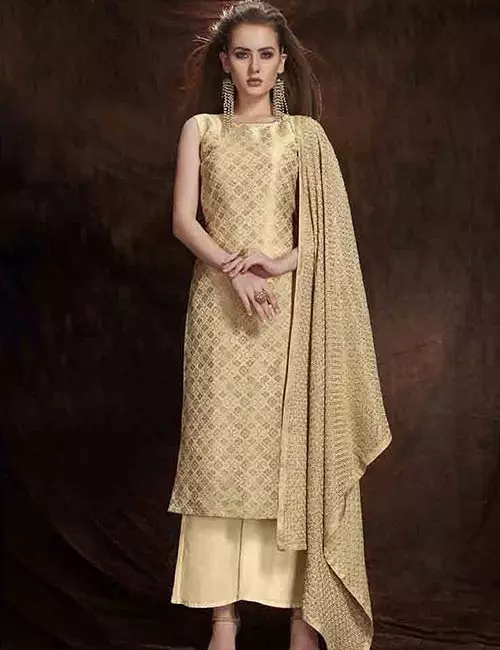
Just put it on either side of your shoulders, pin it up, and spread it over your arm. It is prim, neat, and shows off your dupatta too. I prefer to wear it on my left because I like that profile better, but you can suit yourself. A style that goes well with plain dresses and phulkari, kalamkari, Bandhini, and Banarasi dupattas.
6. Two Sided
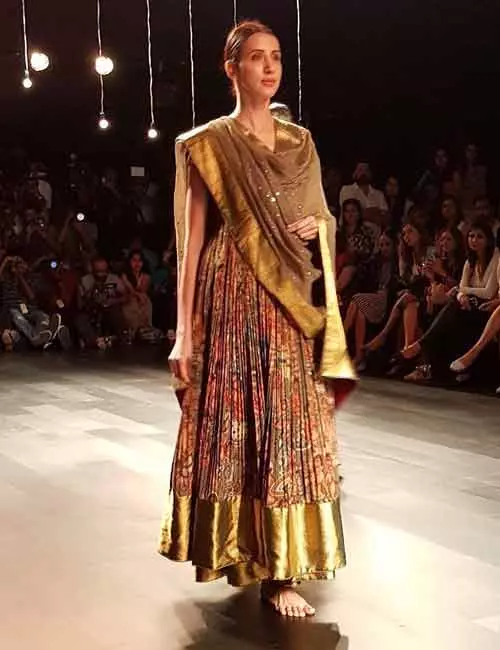
A style all mothers love. It can sometimes look great, and that’s why you see a lot of celebrities on the runway being spotted in this style. It’s a great technique to camouflage sleeveless dresses, or when you want to highlight your dupatta.
8. One Shoulder-One Arm
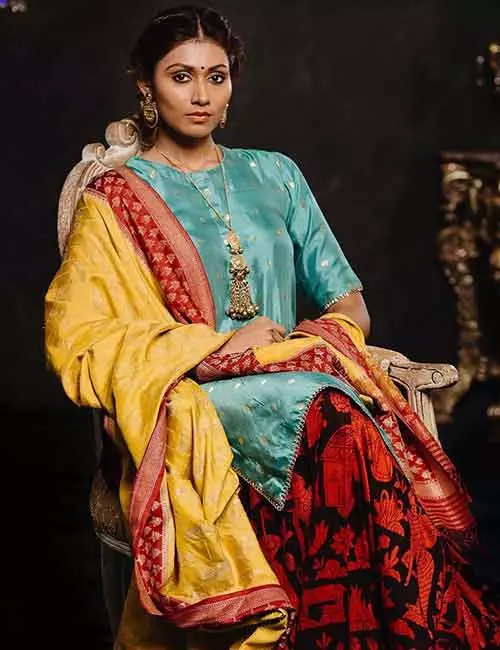
Give your one-sided shoulder style a little twist and bring it to the front to give your outfit a fuller look while highlighting the dupatta. Floor length dresses with Banarasi or phulkari dupattas for lehengas look great.
9. Full Open
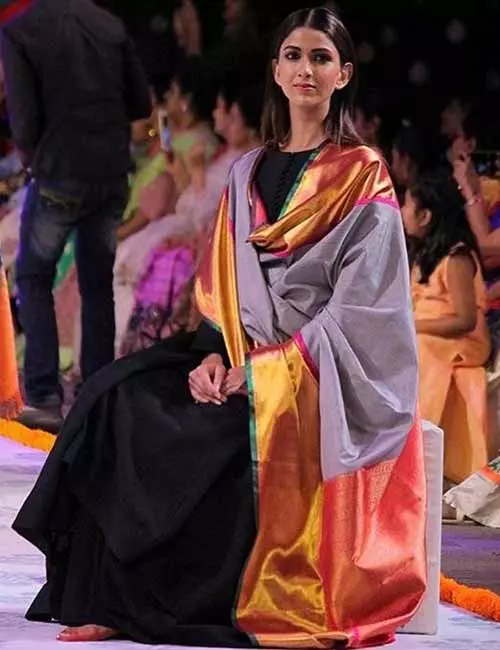
Spreading your dupatta seems like a boring idea and old school, but it’s not. In fact, it can look smart and classy, and a little vintage.
10. Saree Style
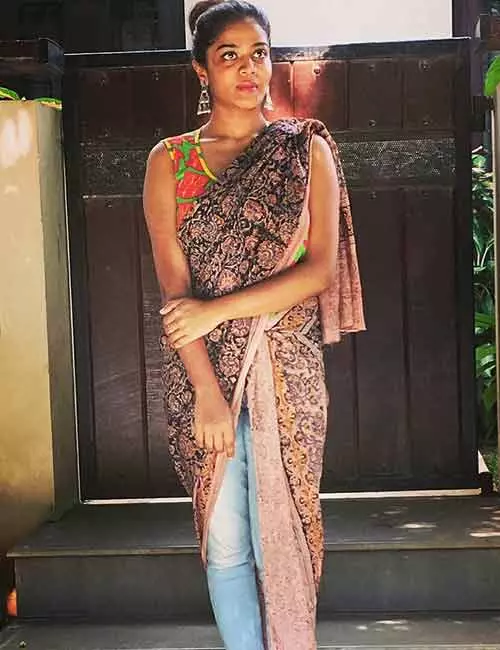
Yes, take your saree story to another level with this contemporary denim style saree, except you do not need a saree for this. Your regular kalamkari dupatta will do.
11. Pleated Style
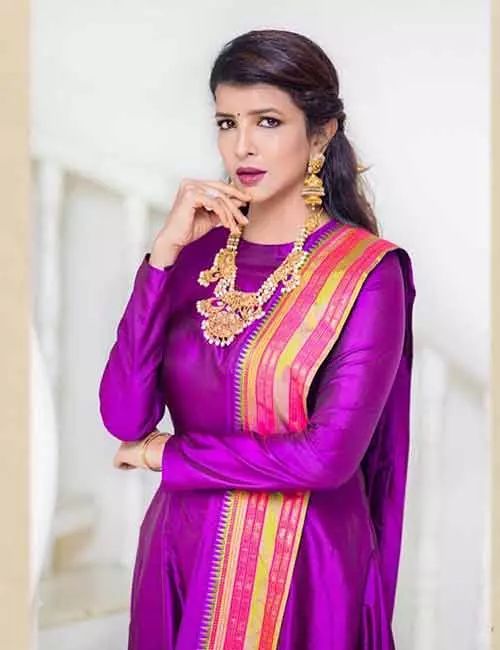
Pleat it all and pin up your dupatta for a neat and polished look. Put up your hair and go with chunky statement pieces to slay it in style.
12. Gujarati Style
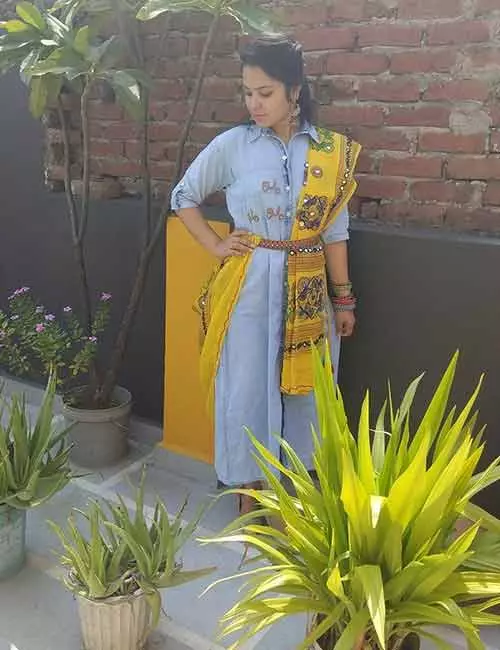
Here’s another way to use your dupatta to ring in the Gujarati way of draping a saree – I mean, your dupatta!
13. Wrap Around
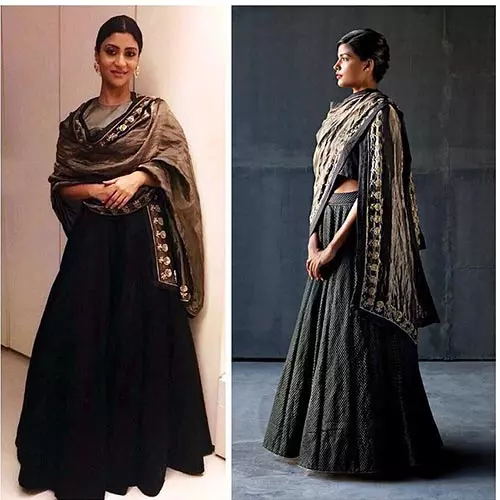
Wrap it around like a shawl on days you feel a little earthy and rooted.
14. Over The Head
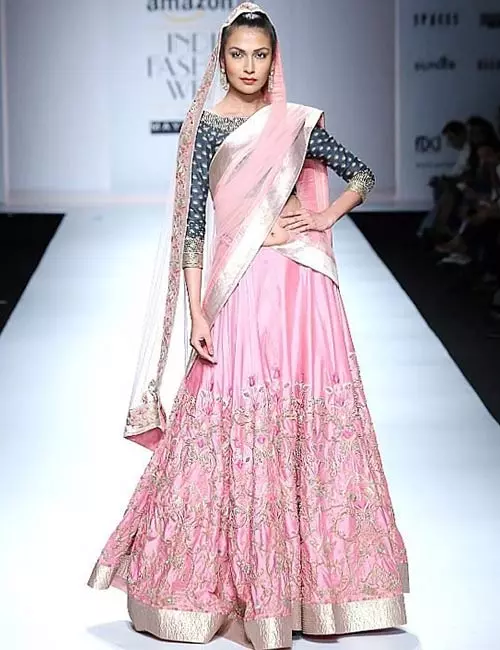
Over the head is a standard look for brides and is something that will never go out of fashion. If you are in a mood for a little nakhre, you know how to style your dupatta, don’t you?
 Quick Tip
Quick Tip15. Cape Style
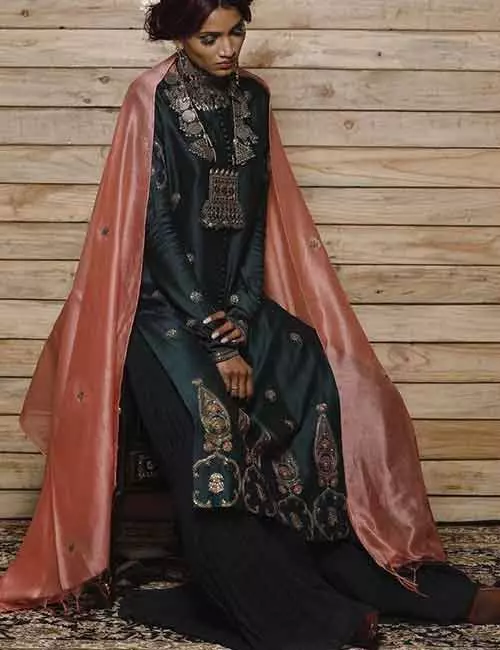
We all love capes and wear them invisibly all the time. Jokes apart, spread it over your shoulders and leave it like a cape or fold it and bring it to the front.
All these styles to play with using a single dupatta, but what about two? Check below for some ideas!
Double Dupatta Draping Styles
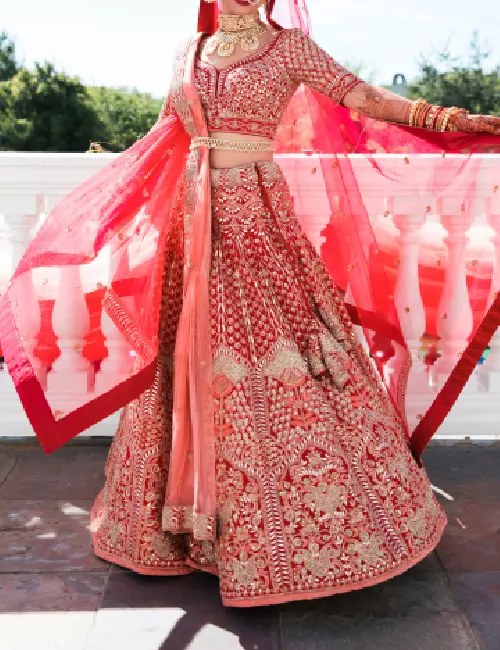
There are multiple ways to drape a double dupatta, but the two common ones are the shoulder drape and the bridal drape. Opt for the classic shoulder drape by laying one dupatta over both shoulders, allowing it to fall freely, and draping the second one like a cape.
For the bridal style, take one dupatta to drape in the pleated style and secure it using a waist chain, and use the second dupatta as a flowing cape secured to your head. Thus, even if you take the cape off, you still have a dupatta accessorizing your outfit. Play with contrasting colors or matching hues for a personalized touch.
While these double dupatta styles elevate your traditional attire for added grace and sophistication, check below to style your lehenga to look slim!
How To Drape A Lehenga Dupatta To Look Slim
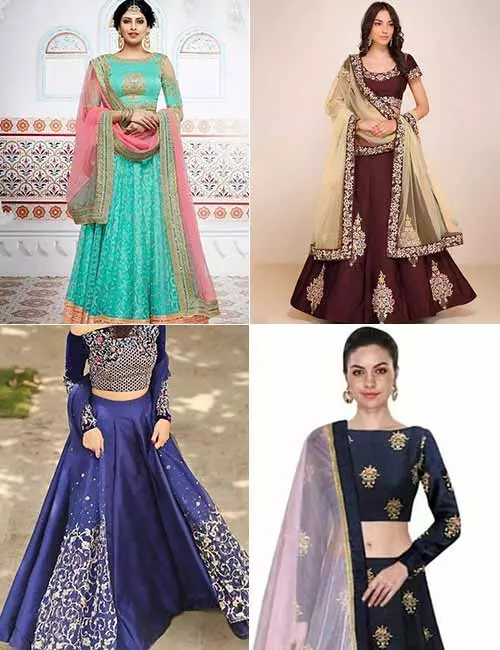
Dupatta, as we all know, is an integral part of our ethnic clothing and is used in ways that we never thought were possible. However, you can also use it to your advantage and cover up any of those unflattering curves you are not comfortable showing, especially when wearing a lehenga. But, you can work with your dupatta in a way that it works to your advantage and look slightly slimmer.
- Dark colored lehengas are your go-to. Spread your dupatta and use something that is profoundly embroidered to make this even better.
- Wear lehenga skirts that are high-waisted; this makes a lot of difference. It shows just enough skin and creates an illusion and makes you look slimmer.
- Handle your dupatta well. Spread it entirely and steer the attention away from the bulges.
- Take care of other details like the sleeves, hemline, and of course the dupatta. Full sleeves and cold shoulders are entirely in right now and will do the job for you.
All these top dupatta styles and looks are sure to stun, but it is also important to learn their cultural significance, as it will make it more special when you are wearing them. So scroll down to learn more!
Cultural Significance Of The Dupatta
The dupatta holds deep cultural significance in South Asian traditions, symbolizing modesty, grace, and femininity. Worn with outfits like lehengas and the salwar kameez, it reflects regional styles and traditions. Many different cultures wear the dupatta differently, bringing a touch of their heritage, culture, and traditions to an outfit. Beyond fashion, dupatta is mainly used in religious ceremonies and rituals, representing respect and cultural identity.
Infographic: Classic Types Of Dupattas And Draping Styles
The elegance of a dupatta is indescribable. Who would have thought that just a mere piece of cloth could give that instant twist to one’s look?! With that thought, we want to introduce you to some of the classic types of dupattas and some elegant draping styles in the infographic below. Illustration: StyleCraze Design Team
A dupatta is the most versatile piece of clothing in your ethnic wardrobe. It complements all kinds of ethnic ensembles. Of course, there is no right or wrong way to wear a dupatta, but sadly, most of us are aware of only a few ways of draping it, which might make an otherwise stylish outfit appear dull. So we have compiled a bunch of creative ideas on how to wear a dupatta fashionably. Try them out and see how they completely alter your look and make you stand out.
Frequently Asked Questions
What is dupatta called in English?
There is no direct translation for dupatta in English as it is not a part of the English culture. However, the term ‘dupatta’ has been officially added to English dictionaries. Dupatta is generally defined as a long piece of fabric or scarf worn in South Asian cultures.
How do you use a dupatta on jeans?
Fashion enthusiasts recommend pairing your jeans with a tank top, tube top, or strapped crop top, wrapping your dupatta around your torso, and pinning it like a kimono. Another recommendation suggests tucking one end of the dupatta into the waist of the jeans and wrapping it around your body like the pallu of a saree. Accessorizing it with a wide belt also seems to be a trend.
If you’d rather prefer a simple look, you could wear a short kurti over your jeans and throw your dupatta over your nape with its ends hanging loose on either side in front of your body.
What is the purpose of a dupatta?
Traditionally, the dupatta was used by women to cover the head, shoulder, and chest area as a norm to maintain decorum. However, these days, a dupatta is a versatile piece of fabric that can be used to spice up your outfit. On a day-to-day basis, many people also use a dupatta to cover their heads and faces to protect against pollution and heat.
Illustration: How To Wear A Dupatta – Different Types & Draping Style Ideas
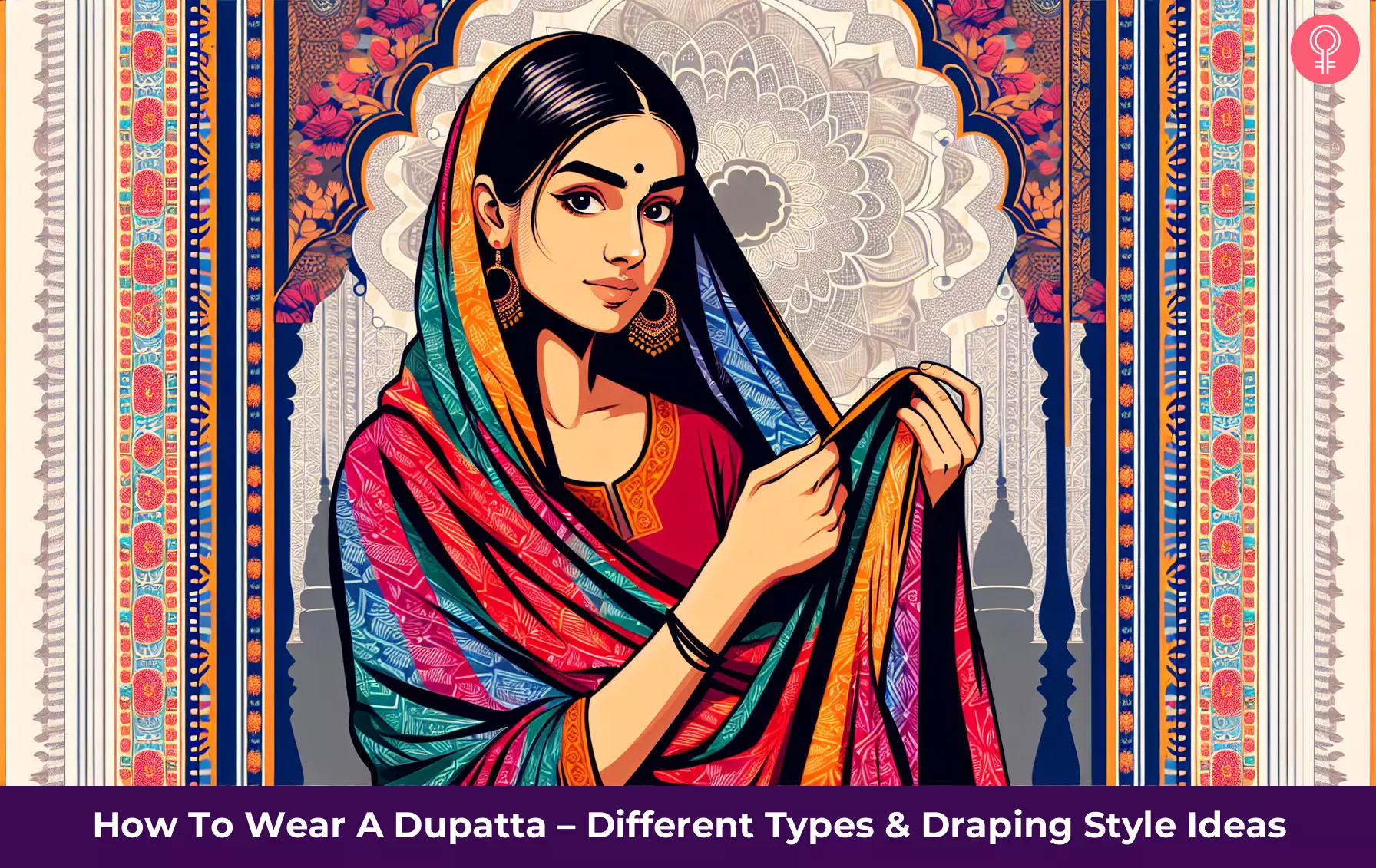
Image: Dall·E/StyleCraze Design Team
Check out this video to style your dupatta in six different South Indian styles. This video showcases a variety of draping techniques from modern to classic pleats!
Read full bio of Traci Jeske
Read full bio of Pratima Ati
Read full bio of Madhumati Chowdhury
Read full bio of Srijani Roy Chowdhury



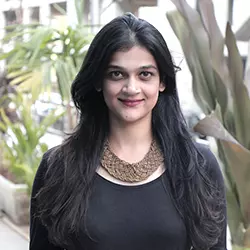


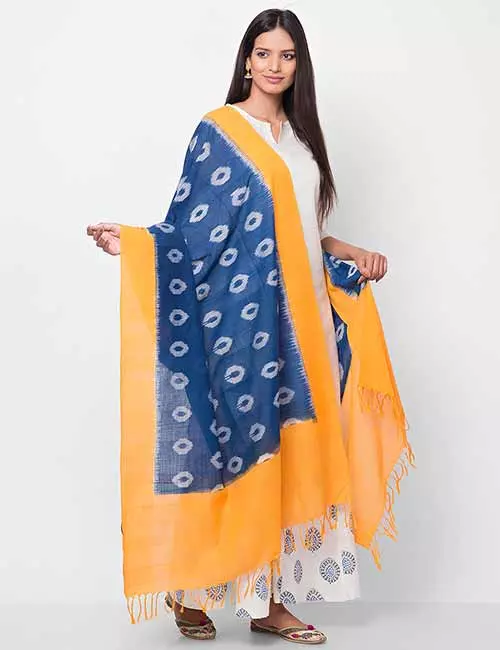
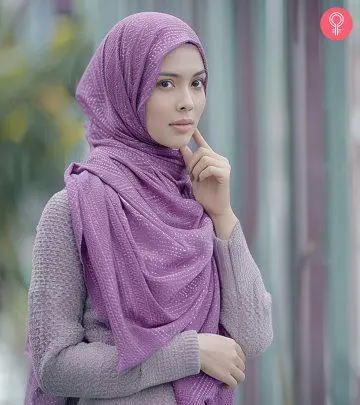
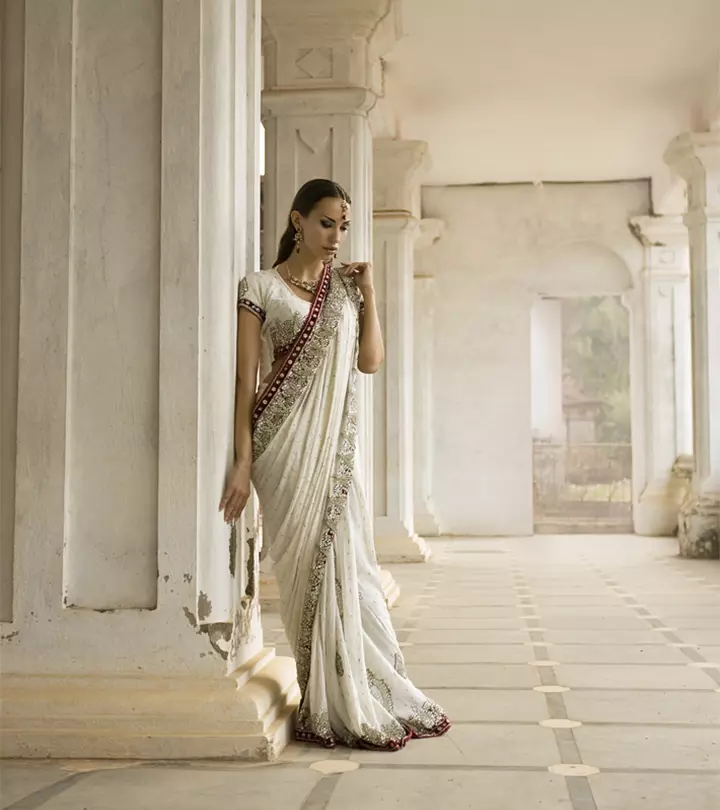
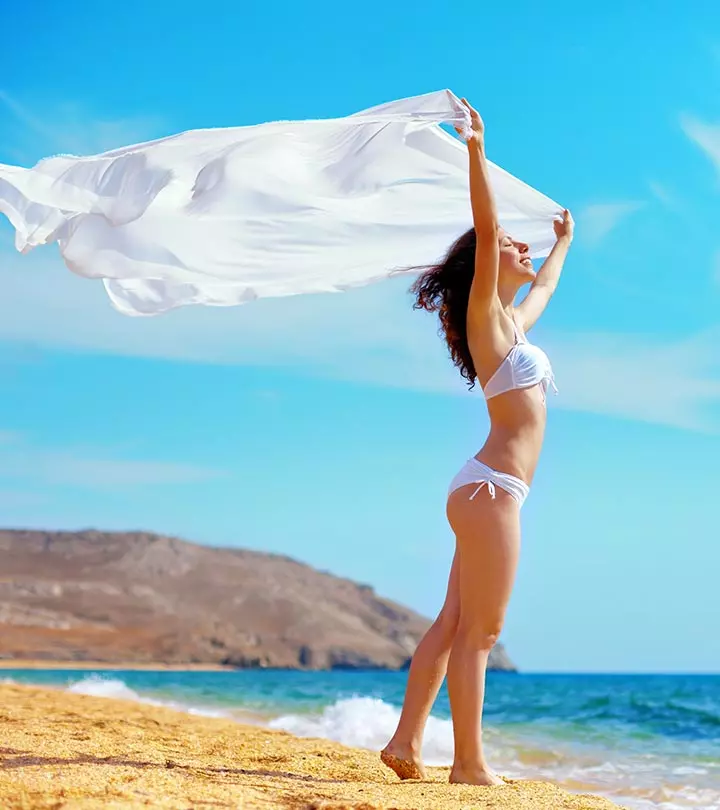
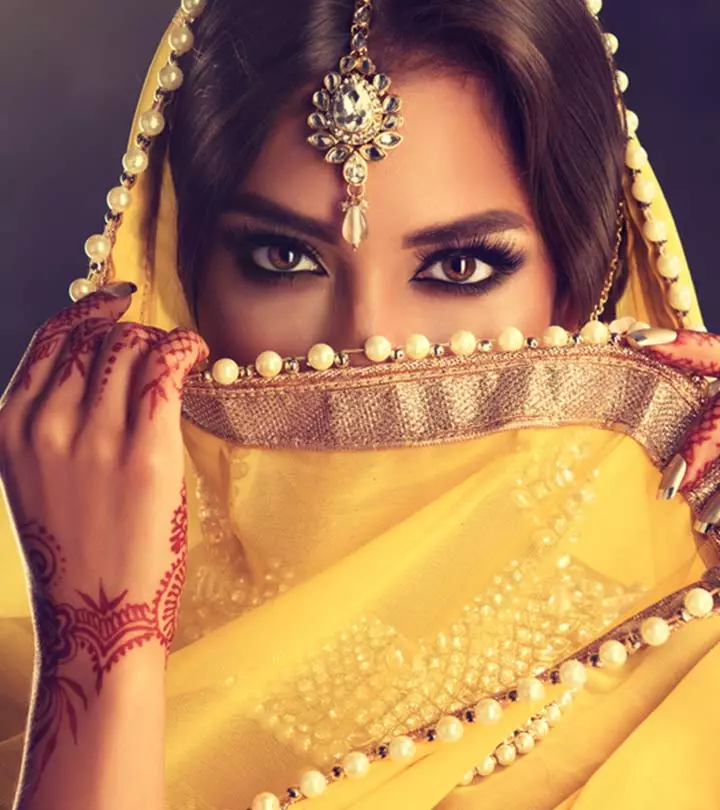
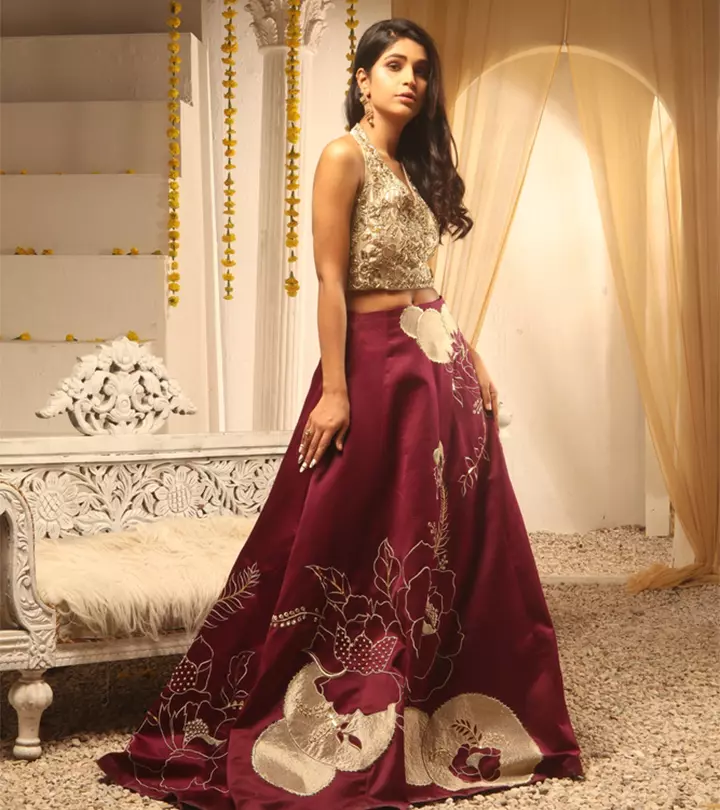
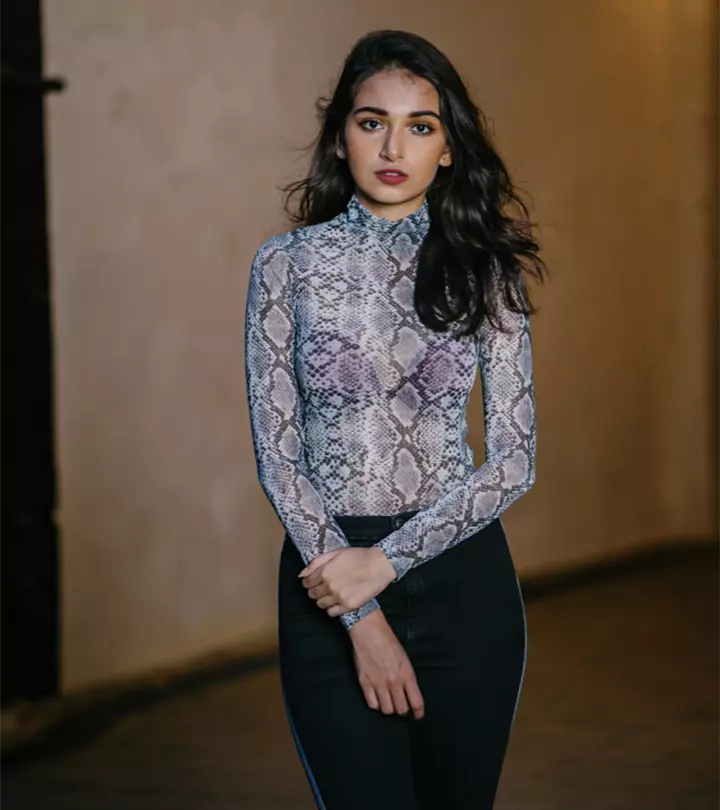
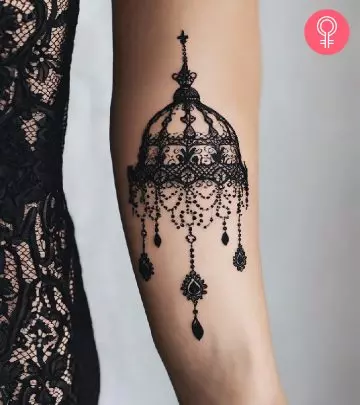
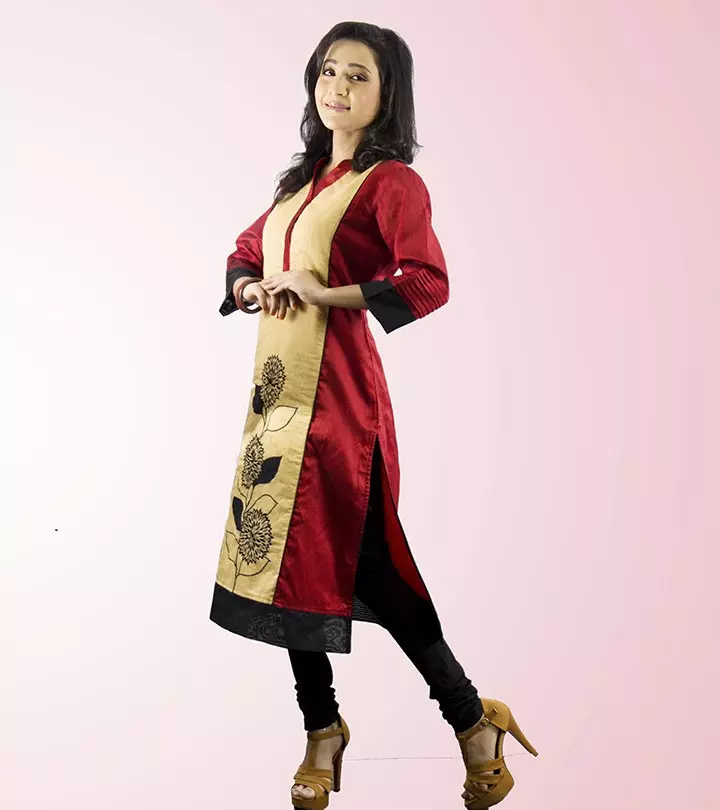
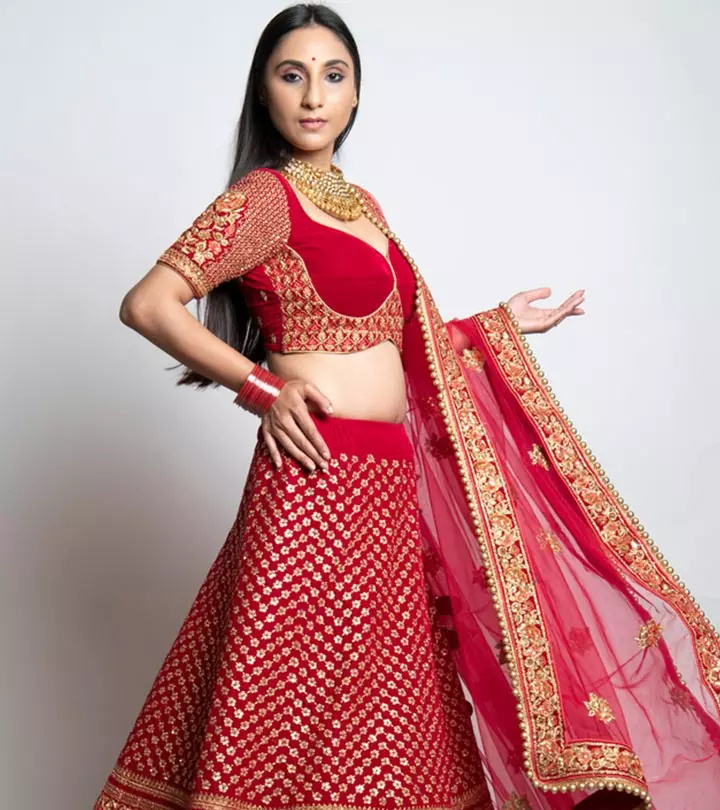
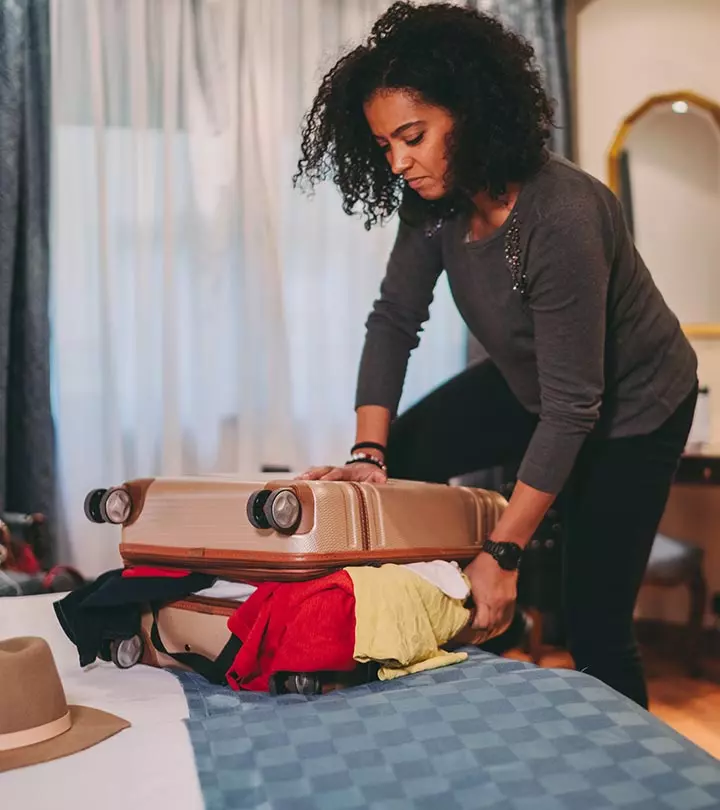
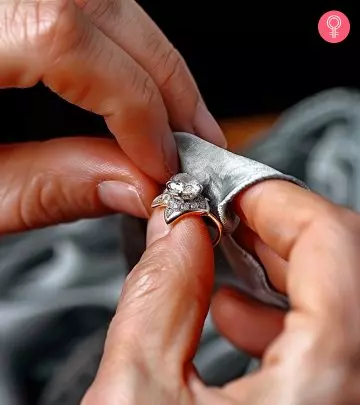
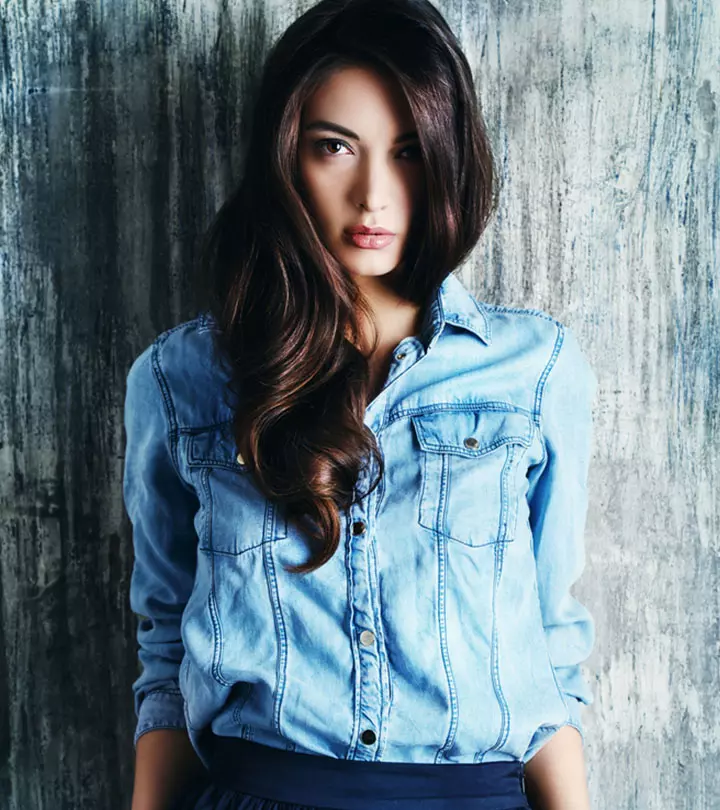

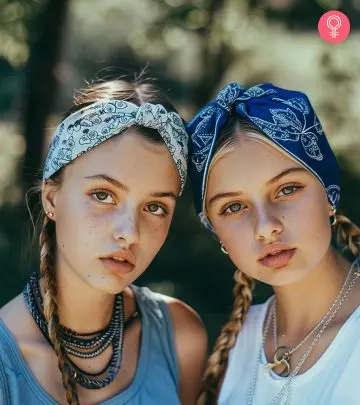
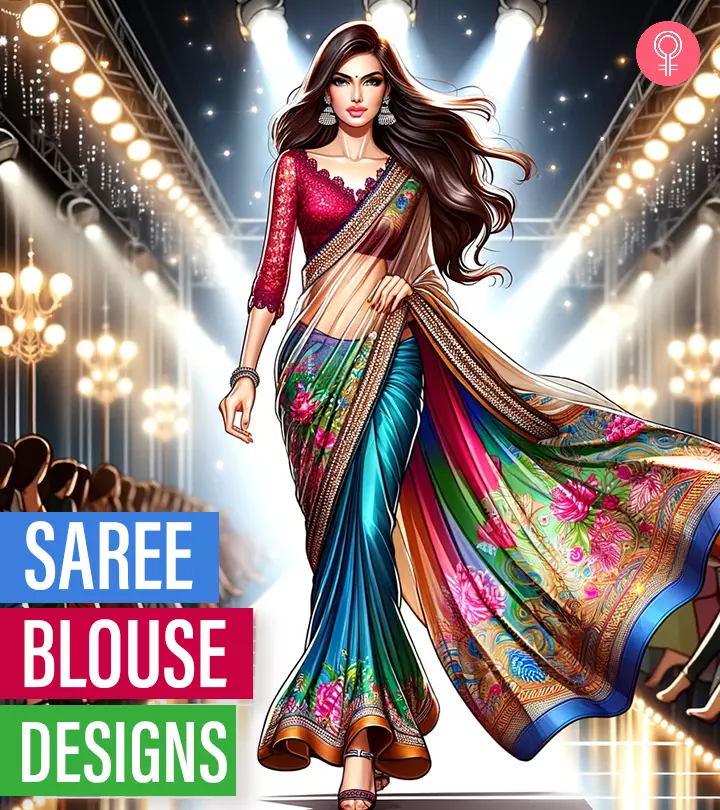
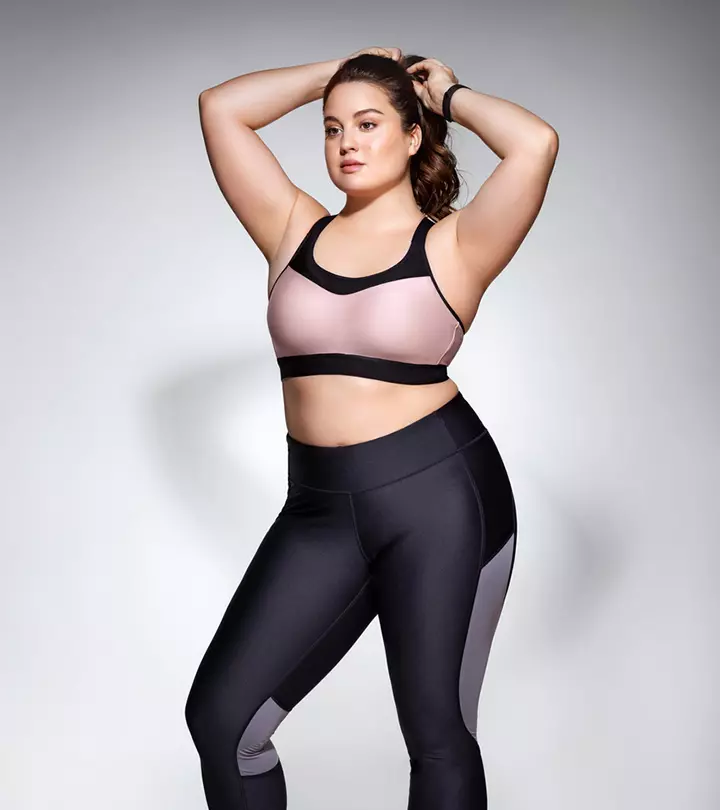
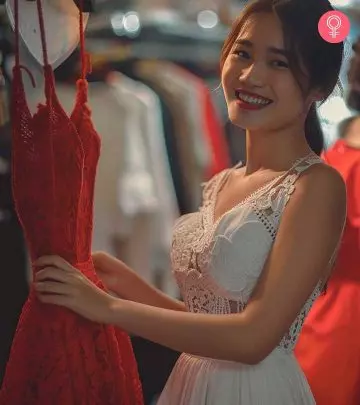
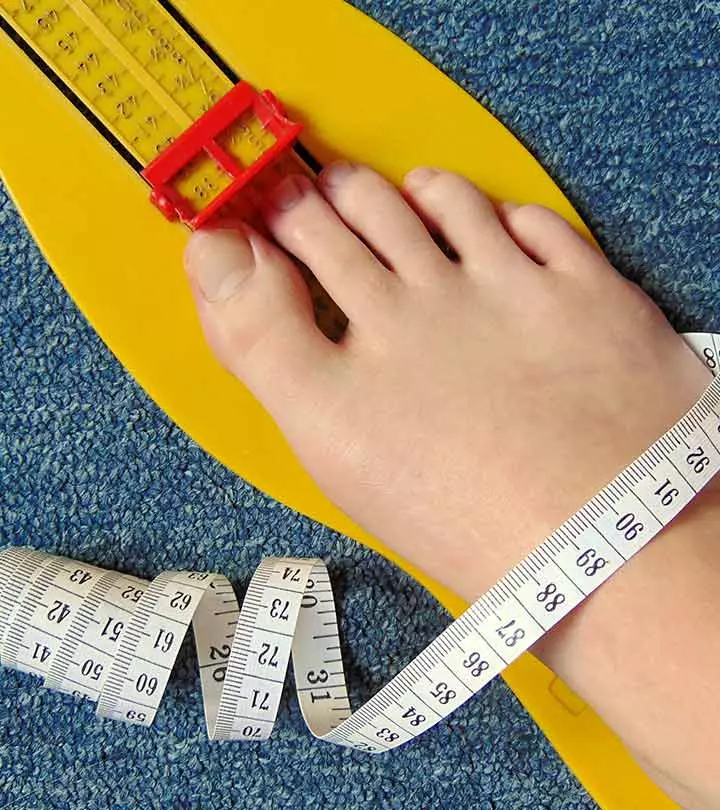
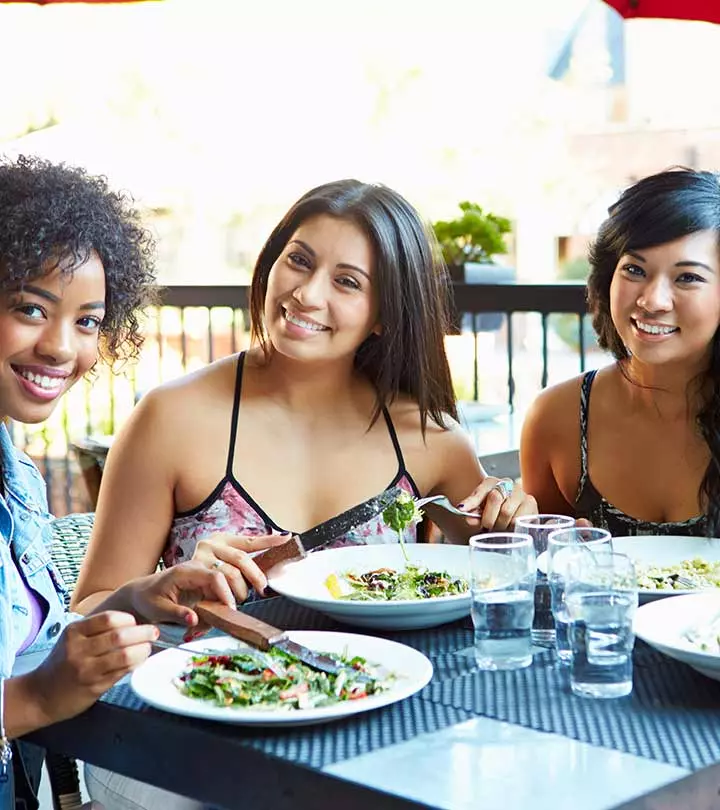
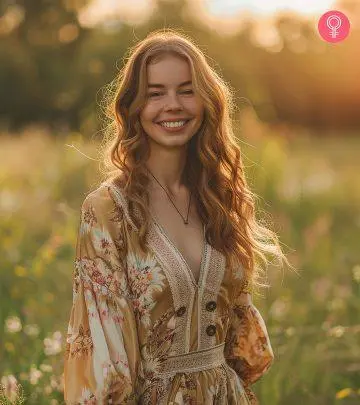
Community Experiences
Join the conversation and become a part of our empowering community! Share your stories, experiences, and insights to connect with other beauty, lifestyle, and health enthusiasts.